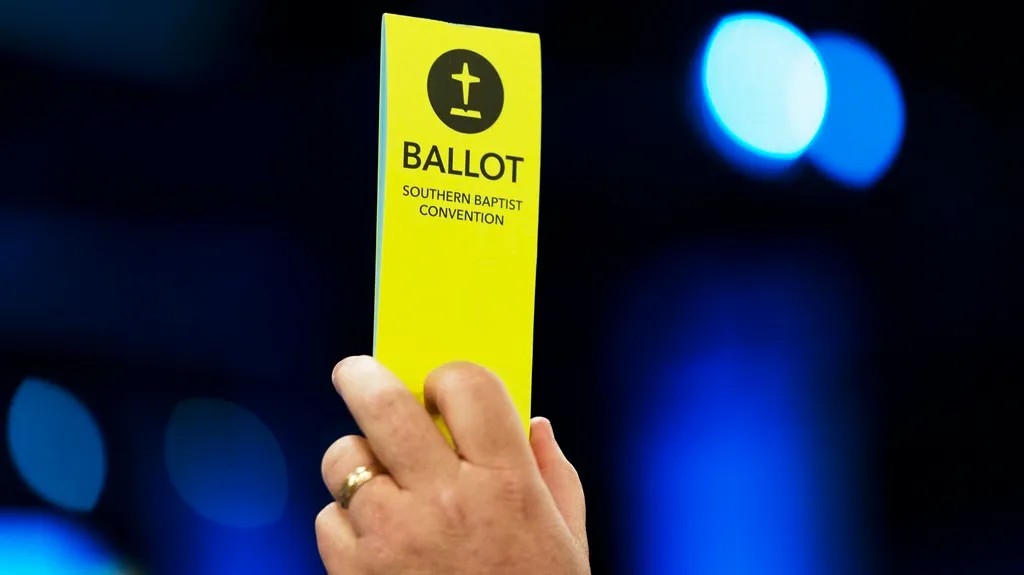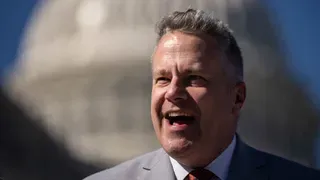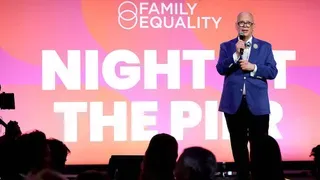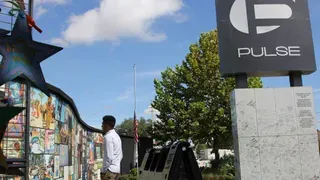February 8, 2011
Sarah Palin Seemingly Okay with Gays Attending Conservative Confab
Kilian Melloy READ TIME: 5 MIN.
Sarah Palin's delayed response following an invitation to appear at this year's Conservative Political Action Conference (CPAC) led to speculation that Palin was joining anti-gay groups who claim to be boycotting the event due to the participation of a gay conservative organization, GOProud.
However, the former governor of Alaska has seemingly put to rest the theory that she planned to skip the Feb. 10 event because GOProud has, for a second year, been allowed to co-sponsor CPAC, reported Mediaite on Feb. 7.
Speaking to a religious media outlet, Palin appeared to address the flap that has arisen anti-gay elements of the extreme right. Palin told CBN News, "Well, I've never attended a CPAC conference ever, so I was a little taken aback this go around when I couldn't make it to this one either and then there was a speculation [that] I either agree or disagree with some of the groups or issues that CPAC is discussing."
Palin added that she anticipated appearing at a future edition of the annual Washington, D.C. gathering of conservatives, saying, "It really is a matter of time for me."
Palin went on to add, "[P]erhaps what it is that you're suggesting in the question is, should the GOP, should conservatives not reach out to others, not participate in events or forums that, perhaps, arising within those forums are issues that, maybe, we don't personally agree with? And I say no.
"It's like you being on a panel shoot, with a bunch of the liberal folks whom you have been on, and you provide good information and balance, and you allow for healthy debate, which is needed in order for people to gather information and make up their own minds about issues," Palin continued. "I look at participation in an event like CPAC or any other event along kind of in that same vein as the more information that people have, the better."
"Clearly it's not the strongest endorsement in the world and Palin's winding phrasing could be interpreted differently if she ever needs it to," the Mediaite article read, "but it certainly seems like the former Governor is in favor of gay groups being invited to CPAC. The fact that she's saying it to an influential Christian network makes it even more interesting."
Palion told political Washington Post analysis blog The Fix that she would be missing this year's CPAC--as she has done for several years running--due to scheduling issues. "February is our busiest winter month and with all the prior obligations and outside travel already scheduled for the month I had to forgo some of the opportunities in the Lower 48," Palin wrote. However, the Feb. 3 posting at The Fix speculated that there might be other issues behind at least some of Palin's absences from CPAC in recent years.
The drama playing out as the Feb. 10 start of this year's CPAC approaches is a stark study in the differences of the right's mainstream and its extreme fringe. The mainstream celebrate the midterm election victories of Tea Party candidates as a rebuke to big government and its social programs, and a victory for freedom, independence, and personal responsibility. Tea Party candidates who prevailed in the last election tended to be those who avoided social issues and kept their focus on jobs, federal spending, and other economic issues.
But for the hard-core anti-gay extreme, the only "true" conservatives are heterosexuals who expect everyone else to "choose" to be heterosexual and reject the "choice" they believe homosexuals make to be "sinners." Anti-gay conservatives view their openly gay compatriots with skepticism or even suspicion, sometimes accusing gays of attempting to "infiltrate" the political right out of a strategy to undermine conservatism. Gay conservatives maintain that they hold personal views that align with conservative principles such as enhanced liberty, reduced government, and the means to promote and protect their own interests, and those of their families.
The fact that the American Conservative Union allowed GOProud to co-sponsor last year's CPAC, and is allowing the group to do so again this year, rubs many anti-gay groups the wrong way. The schism between religiously motivated anti-gay conservatives and fiscal conservatives is especially pronounced given the list of those groups that have purportedly chosen to boycott the 2011 edition of CPAC, such as Concerned Women for America, Liberty University, and the Family Research Council.
GOProud contends that specific positions on issues are secondary to the fact that the organization is out, proud, and conservative. In short, GOProud suggests, anti-gay elements of the political right simply do not like sexual minorities: said GOProud head Jimmy LaSalvia, "The reason the boycotters applied a litmus test to us is because we were born gay."
That interpretation can hardly be faulted given statements like the one tossed off by Liberty University's Mathew Staver, who told the New York Times that "GOProud is working to undermine one of our core values." Staver implied that gays are welcome to lend their weight to the conservative movement, but when it comes to full membership, they should content themselves with a seat in the back of the bus: "[T]hey shouldn't be allowed to be co-sponsors," Staver said.
Nominally secualar groups such as the Heritage Foundation are also skipping this year's CPAC, the New York Times noted, but the ACU has held firm and declined to rescind GOProud's co-sponsor status. Indeed, it may not matter much if the anti-gay crowd stay home: this year's CPAC is expected to be the biggest one yet.
GOProud itself barely seems to promote anything overtly gay. The reason that anti-gay groups give for denouncing GOProud is that the organization says that the issue of marriage should be left to the states to decide, and indeed states' rights are a rallying point for many on the ideological right.
Palin's seeming endorsement of CPAC's decision to allow GOProud to co-sponsor the 2010 and 2011 events might be read as evidence that she herself bears no animosity toward gays, though she might pursue policies that are antithetical to equality. Similarly, George W. Bush was seen as not personally homophobic, though he advocated for an amendment to the United States Constitution that would have barred gay and lesbian families from being granted marriage equality even on the state level--a stance with which many conservative defenders of states' rights disagreed.
In his 2010 memoir Decision Points, Bush praised his 2004 campaign manager Ken Mehlman, who came out as gay last year, receiving heated criticism from both the political right and left for doing so.
Palin, however, has said that she would support such an amendment to the nation's bedrock law. Moreover, when Alaska voters passed an anti-equality amendment to the state's constitution, Palin stood behind the measure, noted an About.com article. But as governor of that state, she also blocked an attempt to deprive gay and lesbian state workers of access to benefits for their families. Even so, About.com noted, Palin said that she would be in favor of laws aimed at stripping gays of the right to access such family benefits.
Kilian Melloy serves as EDGE Media Network's Associate Arts Editor and Staff Contributor. His professional memberships include the National Lesbian & Gay Journalists Association, the Boston Online Film Critics Association, The Gay and Lesbian Entertainment Critics Association, and the Boston Theater Critics Association's Elliot Norton Awards Committee.






